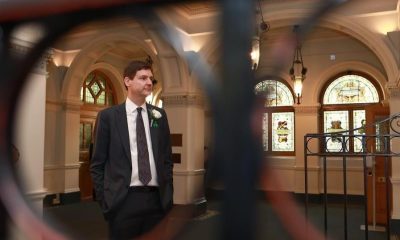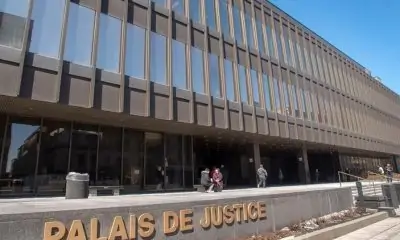WINNIPEG – Adam Lowry and Mason Appleton scored a pair of quick third-period goals to help the Winnipeg Jets defeat the Pittsburgh Penguins 6-3 on Sunday to remain the only unbeaten NHL team.
The victory extended Winnipeg’s franchise-record, season-opening win streak to five games.
Kyle Connor, Mark Scheifele, Vladislav Namestnikov and Nino Niederreiter, into an empty net, also scored for Winnipeg (5-0-0).
Appleton added an assist. Nikolaj Ehlers, Colin Miller and Josh Morrissey each contributed two assists.
Pittsburgh (3-4-0) got a pair of goals from Lars Eller and one from Kevin Hayes.
It was a battle of backup goaltenders making their first starts of the season.
Eric Comrie made 39 saves for Winnipeg, while Alex Nedeljkovic stopped 31 shots for Pittsburgh.
Takeaways
Jets: Winnipeg is getting scoring from all lines and different players. Twelve players have goals this season.
Penguins: Pittsburgh’s question marks in net continued with the third different starter in as many games. Tristan Jarry (healthy scratch) had started last Wednesday’s game against Buffalo but was pulled in favour of rookie Joel Blomqvist, who got the nod to start Friday’s game versus Carolina. Nedeljkovic was called up from a conditioning stint in the AHL to start against the Jets.
Key moment
After Eller tied the game 3-3 at 1:39 of the third, Jets captain Lowry won the faceoff, then capitalized on a puck that bounced off Appleton to score for the 4-3 lead at 4:20. Appleton added his goal at 7:41.
Key stat
Connor has scored a goal in three straight games and is on a five-game point streak (four goals, one assist).
Up next
Jets: Head out on a three-game road trip, beginning Tuesday against the St. Louis Blues.
Penguins: Play the second game of a four-game road trip in Calgary Tuesday against the Flames.
This report by The Canadian Press was first published Oct. 20, 2024.






















